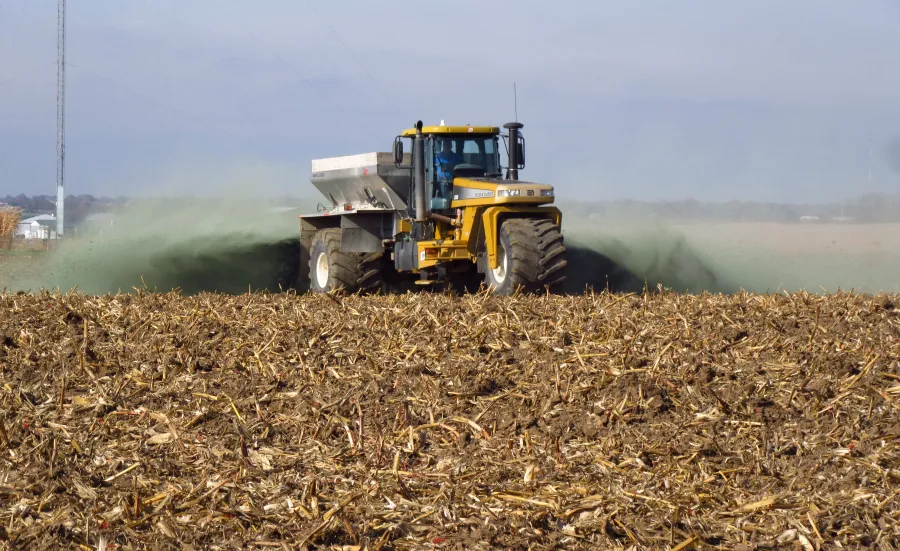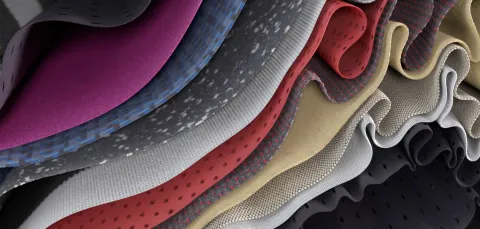Professor Rachael James is working with colleagues across the University, and at the University of Sheffield’s Leverhulme Centre for Climate Change Mitigation, to explore whether a natural carbon capture technique called ‘weathering’ can be used to absorb carbon at a higher rate.
Exploiting natural carbon capture
Weathering happens when the CO₂ in rainwater reacts with rocks and soil minerals in the ground, converting it into non-harmful forms of carbon such as hydrogen carbonate ions.
These then run off into rivers, groundwater and the ocean where they can be stored securely for hundreds of thousands of years.
We realised that we could speed up this natural process by spreading crushed rocks on fields. This creates an environment called ‘enhanced rock weathering’ where more CO₂ is removed from the atmosphere at a faster rate. This could help us meet the requirements of the Paris Agreement for limiting global warming to less than 2°C.
Rachael James - Professor of Geochemistry
Using her background in weathering and geochemical techniques, Rachael is leading work with a mining company to apply their waste products to agricultural crops and quantify how much CO₂ can be captured. They then compare these results to sites where this treatment isn’t being used.
The field trials are being carried out in the UK, Brazil, Malaysia and the US.
Carbon capture is not the only advantage of enhanced rock weathering. The nutrients in the rocks act like fertilisers and increase the yield of the crops. In equatorial regions where dietary zinc deficiency is common, the high level of zinc in the rocks increases the amount of zinc in plants and subsequently in people’s diets.
An explosion of international interest and future impact
The research has seen a huge amount of international interest from a wide range of organisations including:
- mining companies who want to find a use for their waste materials
- farmers who want to use the crushed rock as a fertiliser to increase their yield and reduce their lime use
- start-up companies and entrepreneurs who want to market the process to large companies looking to reduce their carbon footprint
However, Rachael warns there may be limits to the extent of the technology as the process is dependent on a supply of reactive rock dust. But despite this, the potential future impact of implementing this technique is looking positive.
Rachael said: “The calculations and field trials we have done indicate that introducing enhanced rock weathering could contribute to an upper limit of 10 percent of the amount of CO₂ that needs to be absorbed from the atmosphere to meet the Paris agreement target for carbon dioxide removal.”
What I love about our work is that we are applying fundamental basic science and evolving it into a process that is mitigating the very tangible problem of climate change.
Rachael James - Professor of Geochemistry






